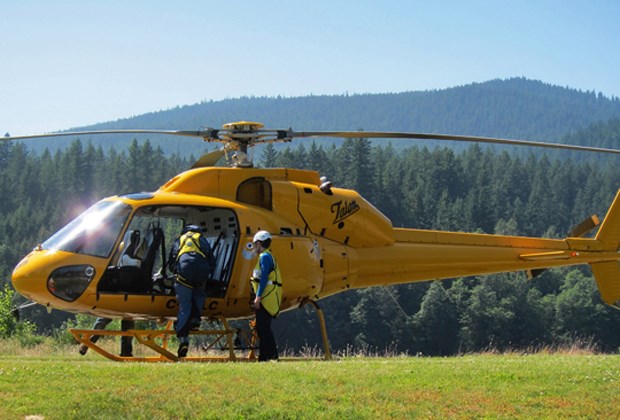The organization that represents the province's 80 search and rescue teams is pitching some ideas to beef up funding for rescue teams that would hit outdoor recreationists in the wallet.
In a paper meant only to get some ideas up for discussion, the B.C. Search and Rescue Association suggests a number of ways SAR groups can raise more funds to help them keep up with ever-growing call volumes.
Among the ideas: putting a new user fee on outdoor recreational activity costs like ski-hill lift tickets, hunting and fishing licences, off-road vehicle registration and outdoor gear.
But that idea is "vehemently opposed" by North Shore Rescue members, said team leader Tim Jones.
"It's an affront. We missed the point. The point is the province should be paying for this, not the tourism industry," he said.
The report notes that if all the volunteer hours spent on rescues were fully paid at RCMP-like salaries, SAR operations would cost the British Columbians about $50 million per year, yet funding from Emergency Management B.C. is closer to $9 million. Citing that fact, Jones said BCSARA shouldn't be tempting the province to find new ways to avoid funding SAR.
"The province is getting this unbelievable return on investment. They need to structure their budget to properly fund search and rescue," he said. "This whole thing got mixed up. Respectfully, in my opinion, BCSARA has missed the mark. They should be talking about return on investment. That should be the theme of the discussion paper - not going after the ski industry or Mountain Equipment Co-op for user fees."
Outdoor recreation is a huge economic generator for the province, Jones said, and the fees would dampen business and punish users, the vast majority of whom are responsible and never need a rescue.
Grouse Mountain, Mount Seymour and Cypress Mountain already provide more than their share of support to NSR - more than user fees could ever pay for, Jones added.
"The support that we get from the three mountains has been absolutely unbelievable. We've got SAR stations at Seymour and Cypress. We've got (radio) repeaters at all three mountains. We get in-kind support from the mountains on everything from transport to meals," he said. "To put a dollar figure on that versus user fees, it wouldn't even come close."
MEC also offers the team discounts on equipment.
Jones said he realizes this is likely to put him at odds with other SAR agencies in the association, but he is committed to lobbying the province for SAR funding for communications infrastructure, stand-by helicopter access and rescue pay for high-volume team members.
The 1970s-era practice of relying on a group of volunteers who will drop what they're doing and head into the wilderness at a moment's notice is not sustainable, Jones said.



